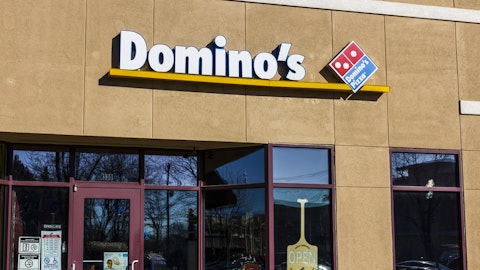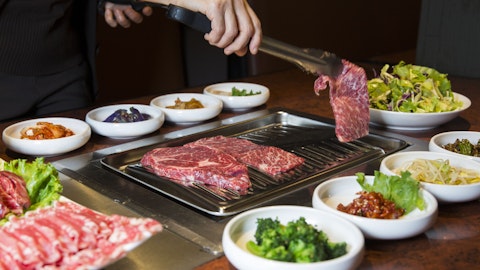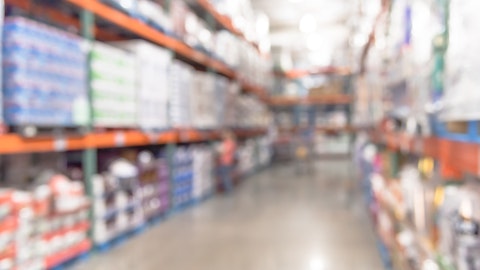Peter Saleh: And then just, Jim, are there any calendar shifts or anything that we should be aware of in the first quarter that might be beneficial or detrimental to the business? And then just on the inflation, I think you guys said, maybe a low to mid-single digit expectation for this year. Is there any sort of change in the cadence first half versus second half? I know you guys don’t like to really forecast out the inflation. I’m just trying to understand if there’s anything that we should be thinking about higher or lower in the first half on inflation?
Jim Leddy: Thanks, Pete. In terms of the first quarter, there are no significant calendar shifts that really come to mind right now, so nothing to really call out there. In terms of inflation, once again, we build it into the range of our guidance. The range of our guidance incorporates potential variability on volume due to macro demand, which we don’t control and due to price, which we don’t control as well, but we adapt to as we move through the year, whether it’s trying to hold price in a deflationary environment or managing the customer and the price in an inflationary environment. So, I think again, it’s just incorporated into that range of the guidance and we adapt and manage as we move along.
Operator: Our next question comes from Ben Klieve of Lake Street Capital Markets.
Ben Klieve: Just one question for me. Throughout call, I appreciate your comments about kind of focusing on integration of your legacy investments and acquisitions and throughout ’24. And my question to you, Jim, is again, in this context where you’re really focusing on what you have already done and integrating these investments, what remains compelling to you in a potential acquisition that you could potentially still make in 2024? Are there kind of high-level characteristics of an acquisition you could look to make in 2024? Or is you feel really kind of off the gas here for the balance of this year?
Chris Pappas: Yes. Thanks for the question. Again, Chefs’ being the little guy of the all the public companies that were measured against. We had to acquire to get the footprint and now the focus has shifted on we’ve created by the end of the year, we’ll probably have 60% more capacity, so the focus is on hyper charging organic growth. And of course, we’re always opportunistic. We’ve always been opportunistic. So we’re not looking to do anything major in new territory and we’ve already stated what our CapEx forecast is going to be. So we’re focused on creating more cash, pay down some debt and maybe buy back shares, but there’s a great fold in which could speed up some of the — and that we don’t want to fill up all our capacity that’s why we build it, we want to grow into it.
But some of these little tuck in acquisitions could be extremely profitable and help us on our march to our EBITDA goals. So we’re always looking, people are always calling, but the real focus right now to drive the organic growth because we have — we finally have good capacity in a lot of our new major markets like we’ve said Florida and Los Angeles, our new processing facility is opening in San Francisco, hopefully in this quarter and we’re going to consolidate a whole bunch of businesses into one state-of-the-art facility. So, we got a lot of exciting things happening in the next year and two.
Operator: We have reached the end of our question-and-answer session. We’d like to take a question from Ben Klieve.
Chris Pappas: Yes. Thank you for everybody for joining our call. I couldn’t be prouder of the team at Chefs’ and what they’re accomplishing. We look forward to many, many great things from this team and look forward to everyone joining our next call. Thank you very much. Have a great day.
Operator: Thank you very much, sir. Ladies and gentlemen, that concludes today’s event. Thank you for joining us. You may now disconnect your lines.
Follow Chefs' Warehouse Inc. (NASDAQ:CHEF)
Follow Chefs' Warehouse Inc. (NASDAQ:CHEF)
Receive real-time insider trading and news alerts




